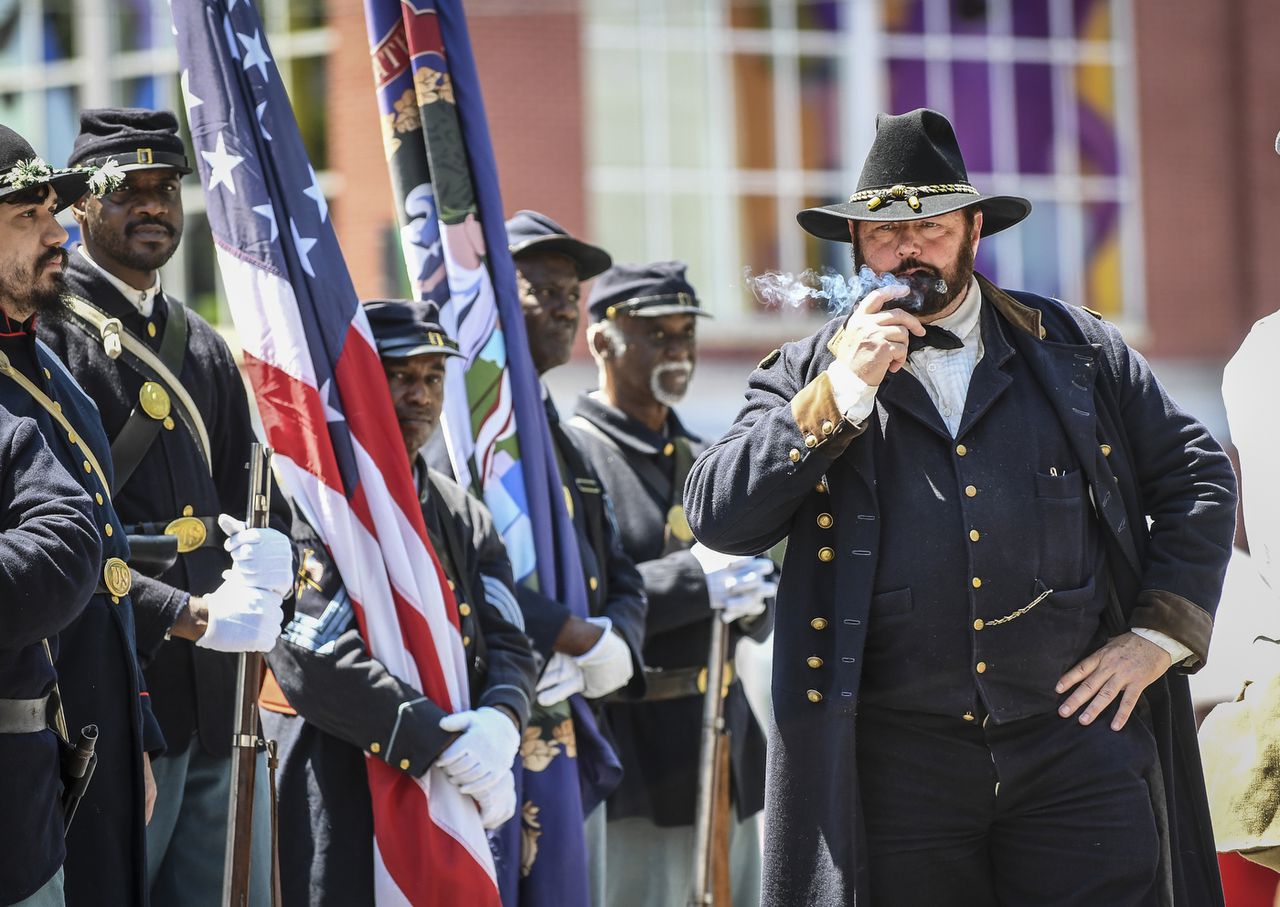It’s imperative that we decide which kind of leadership style we want
This is an opinion column
Some years ago, while on a family vacation, I picked up a book my husband had been reading. John Keegan’s “The Mask of Command” compared and contrasted military leaders and styles of leadership.
It’s now a work greedily consumed by military types, and was a pretty unlikely book for an early-middle-aged woman with pre-teen children. However, Keegan’s insights about leaders were stunning — and oh, so timely now.
The impending death of a truly genuine man, Jimmy Carter, and the non-stop cultish approach to leaders, politics and imagery over substance make Keegan’s 35-year-old work a wonderful manual for understanding those who would lead us.
He first tells us about Alexander the Great, the Macedonian warrior king who led from the front, always sharing the danger and exposing himself to the same hardships as his men. Alexander crossed a desert with his thirsty army and famously — if only in brilliant apocrypha — poured out a helmet full of water, which had been reserved for him, to share the privations of his soldiers.
He is held up as a genuine hero who did great things, and had the good fortune to die young, before his reputation was tarnished by the oxide of old age.
Another kind of hero is the person who leads by being everything that Alexander the Great was not. Arthur Wellesley, later the Duke of Wellington, defeated Napoleon Bonaparte and the French at Waterloo. Keegan called him an “anti-hero.” Alexander’s personal slashing and stabbing was replaced by a man who was comfortable in his place in society and did what English aristocrats did then: go to war and win.
More interesting to an American than the Duke of Wellington, Ulysses S. Grant is shown as an example of un-heroic leadership.
Grant, who loved whiskey and cigars, and shambled around in the coat of a private soldier, rejected the dash and glamor that 19th century warfare was imagined to be. He got the basics of the new age of industrialized conflict.
War has a stench that Grant’s cigars could not mask. He knew that, and pursued the deadly business with a determination that ground the Confederate Army into submission. His lack of flash and style was a style all its own. This most un-heroic man saved the Union.
There is one of Keegan’s type of leaders that we see every day. The rise of this kind of hero is fueled by fear, hatred, falsehood and mythmaking. Keegan described just such a man: Adolf Hitler. This kind of false hero is with us now — and as close to you as the screen of your television.
A false hero depends on the fears of his followers and his skill at creating a persona that appeals to those people but in fact is empty.
Hitler and his consummate mythmaker, Joseph Goebbels, took the germ of an idea — the racial superiority of a Germany which was defeated in the First World War and had always felt like a poor relation of Great Britain — and spun it into a notion of “the master race.”
Keeping many of the psychological trappings of the Kaisers, the Fuhrer crafted quite an image. You can see Hitler’s copycats today, strutting, posturing and always drawing the distinction between good (them) and evil (others).
Good weather in Hitler’s day was known as “Fuhrer weather.” Bad science was known as “Jewish science.” The relentless “them-against-us” was used to propel the world into the most destructive war in history.
What about now? Watch the news. Whom do you see? Alexander? Grant? Hitler?
The Hitlers are easy to spot: They are the modern model of leadership. There are a few Grants out there as well: People who stepped up and told unpleasant truths (Liz Cheney and the late John McCain come to mind).
Some, like Jimmy Carter, are the anti-heroes of Keegan’s book. They are who they appear to be. They toil to do things the right way, and they eschew aggrandizement.
But what about genuine heroes? Are they out there? Is there an Alexander in our midst who will lead from the front? From a political perspective, the Alexanders are an aspirational rather than a practical reality — and probably obsolete in the world of politics.
And there is the moral of Keegan’s work.
How we understand and react to those who would lead us is the critical idea. Heroes come and go. How we react to them — who we follow — literally creates the world around us.
So, who will it be? Alexander, Hitler, Grant or Wellington? Will you choose a genuine, false, un-heroic or anti-hero leader?
We have to choose who really is what. Do we want a leader who pours water from his helmet, or one whose cardinal skill is lying? Would we have a cigar-chomping realist or a rich Englishman who didn’t see war as heroic at all?
Understanding who we will follow, and why, informs your choice. And you must make that kind of choice as if your life depends on it — because it does.
Frances Coleman is a former editorial page editor of the Mobile Press-Register. Email her at [email protected] and “like” her on Facebook at www.facebook.com/prfrances.
